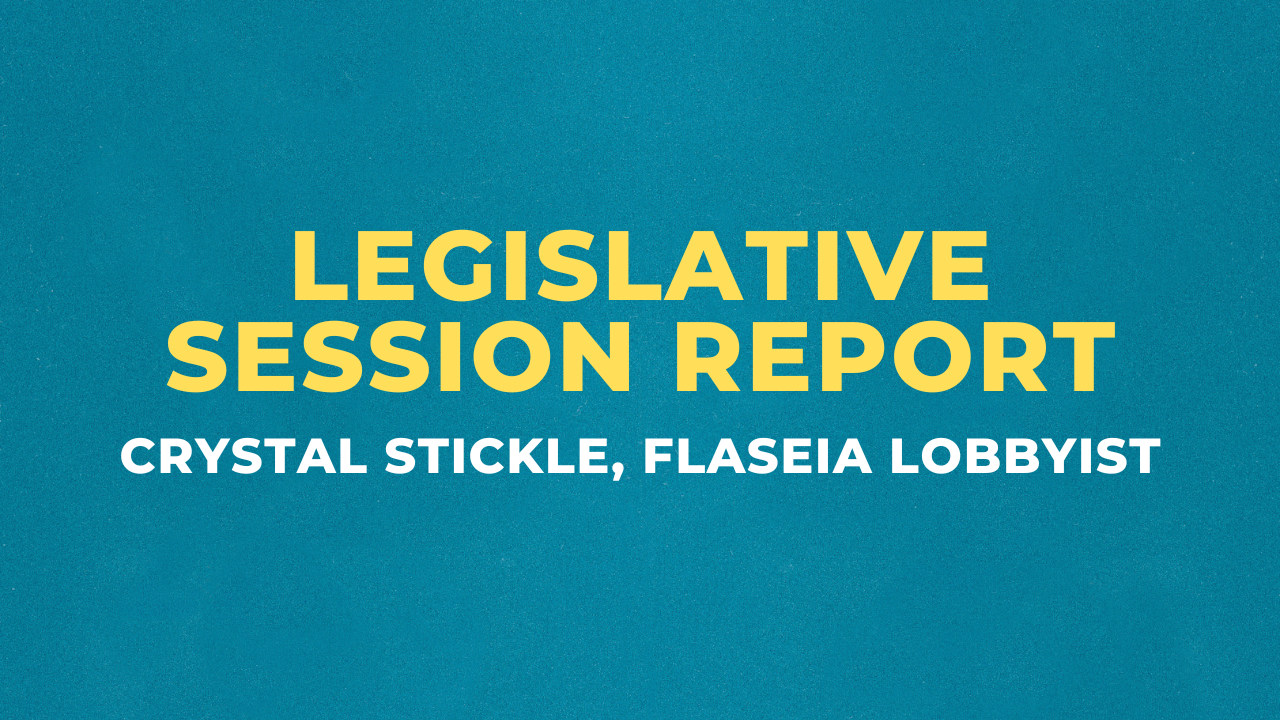2024 Legislative Update - 35 Days Remain

2024 Legislative Update - 35 Days Remain
There are officially 35 days left of the 2024 Legislative Session! With Subcommittee meetings in the House winding down, the committee agenda this week has been packed with bills hoping to make it across the finish line this Session. Crafting the state budget has been a focus of the legislature the last two weeks with each chamber passing their respective budgets out of committee this week. The bills are expected to be passed off the floor next week to position the House and Senate for budget conference. The House proposal has $392 million less than the Senate version, which totals at $115.9 billion. The reasoning behind this lack of funding is partially due to the removal of COVID funds being used for new projects rather than their intended use, recurring expenses. Both proposals have been placed on the Special-Order Calendar for February 7th.
This week FlaSEIA members came to the capitol to make the rounds and talk to legislators about the positive impact of the solar industry and discuss the current energy legislation and impacts to the market. We met with multiple House and Senate members over two days highlighting the growth in the industry and providing insight into current market trends.
On the energy policy front, things were somewhat tame with only two priority bills up this week. SB1624 by Senator Collins and HB 1645 by Representative Payne. SB1624 has passed in its first committee, Regulated Industries, with 4 Yeas and 2 Nays. It is now in the Appropriations Committee on Agriculture, Environment, and General Government, with a final stop in Fiscal Policy before heading to the Senate floor for a full vote.
HB1645 passed in its first committee, Energy, Communications & Cybersecurity Subcommittee unanimously. The House bill has two more committee stops before heading to the House Floor- Appropriations Committee and Commerce.
The bill addresses multiple areas of energy policy but DOES NOT include any provisions related to solar or changes to net metering.
The bill would:
- Directs the PSC to conduct an assessment of the security and resiliency of the state’s electric grid and natural gas facilities against both physical threats and cyber threats. The provision also requires the PSC to submit a report to the Legislature.
- Directs the PSC to study and evaluate the technical and economic feasibility of using advanced nuclear power technologies, including small modular reactors (SMRs), to meet the state’s electrical power needs, and research means to encourage and foster the installation and use of such technologies at military installations in the state. The provision also requires the PSC to submit a report to the Governor, President of the Senate, and Speaker of the House of Representatives.
- Directs the FDOT, in consultation with the Office of Energy within the DACS, to study and evaluate the potential development of hydrogen fueling infrastructure, including fueling stations, to support hydrogen-powered vehicles that use the state highway system. The provision also requires the FDOT to the Governor, President of the Senate, and Speaker of the House of Representatives.
- Requires the Public Service Commission (PSC) to create targeted storm reserve amounts for public utilities.
- Authorizes the PSC to establish an experimental mechanism to facilitate energy infrastructure investment.
- Permits the PSC to approve voluntary public utility programs for residential, customer[1]specific electric vehicle charging if the PSC determines that the rates and rate structure of a proposed program would not adversely impact the public utility’s general body of ratepayers.
- Requires the PSC to conduct an annual proceeding to determine prudently incurred natural gas facilities relocation costs for cost recovery by natural gas public utilities.
Both bills were amended in committee with the following changes:
- Deletes a provision in the bill that created an electric vehicle battery deposit program within the Department of Highway Safety and Motor Vehicles and a related report.
- Deletes a provision in the bill that required the FDOT, when it enters a contract or has entered into a contract or license to allow a vendor to sell motor fuel or charging services along the turnpike system, offer access to potential vendors of other motor vehicle fuels or repowering services along the turnpike system.
- Deletes a provision in the bill that created a requirement that, before a public utility retires an electrical power plant, it must petition the Public Service Commission (PSC) for approval.
- Adds a provision requiring the PSC to create targeted storm reserve amounts for public utilities.
- Adds a provision authorizing the PSC to establish an experimental mechanism to facilitate energy infrastructure investment.
- Regarding a provision in the bill permitting the PSC to approve voluntary public utility programs for residential, customer-specific electric vehicle charging, it revises the applicability date for previously approved programs.
